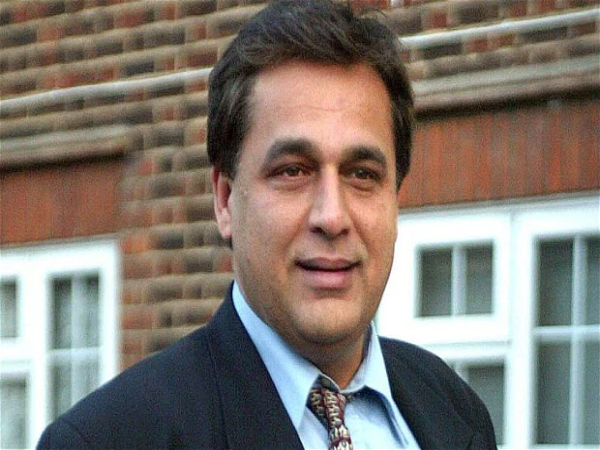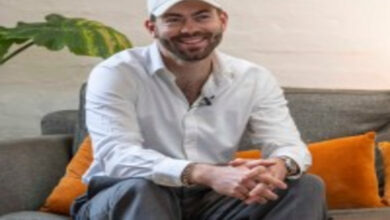Hasnat Khan: The Private Life and Remarkable Career of Princess Diana’s “Mr. Wonderful”
Unveiling the story of the world-renowned cardiothoracic surgeon who captured Princess Diana’s heart and continues to impact global heart health.

Hasnat Khan is a British-Pakistani cardiothoracic surgeon best known for his relationship with Princess Diana during the mid-1990s. Born on April 1, 1958, in Jhelum, Pakistan, he built a distinguished medical career across Pakistan, Australia, and the United Kingdom. Known for his professionalism, humility, and medical expertise, Khan has served as Consultant Cardiac Surgeon at the Essex Cardiothoracic Centre in England and held leadership positions at the King Faisal Heart Centre. Despite worldwide attention for his personal life, Hasnat Khan remains one of the most respected figures in cardiothoracic surgery today.
Early Life and Education of Hasnat Khan
Hasnat Ahmed Khan was born in Jhelum, Punjab, Pakistan, on April 1, 1958, into a well-educated and respected Pathan family. His father, Rashid Khan, was a graduate of the London School of Economics and managed a glass manufacturing business in Jhelum. Hasnat was raised in an environment that valued discipline, education, and service to others.
From a young age, Khan displayed an exceptional aptitude for science and a compassionate nature, both of which steered him toward a career in medicine. He earned his medical degree (MBBS) from King Edward Medical College in Lahore, Pakistan, one of the most prestigious medical institutions in the country.
Following his graduation, Khan moved to Australia in the late 1980s to further his medical training in adult cardiac surgery. Later, he advanced his career in the United Kingdom, where he became affiliated with multiple reputable hospitals. To enhance his expertise, he achieved fellowship status with the Royal College of Surgeons of Edinburgh, solidifying his credentials as a leading specialist in cardiothoracic surgery.
Professional Career and Achievements
Dr. Hasnat Khan’s medical journey reflects both excellence and dedication. Over the years, he has contributed significantly to cardiac care in multiple countries.
Career in the United Kingdom
In the United Kingdom, Khan began working in several hospitals known for their cardiac surgery departments. His skills and professionalism soon earned him a position at the Royal Brompton Hospital, one of London’s top cardiothoracic facilities.
Later, he joined the Essex Cardiothoracic Centre in Basildon, where he continues to serve as a Consultant Cardiac Surgeon. His expertise lies in:
-
Mitral valve repair and aortic root surgery
-
Coronary artery bypass grafting (CABG)
-
Minimally invasive cardiac surgery
-
Valve replacement and thoracic surgery
His colleagues often describe him as highly skilled, calm under pressure, and dedicated to patient care.
Role at King Faisal Heart Centre
Between 2014 and 2016, Hasnat Khan reportedly served as Head of CardioThoracic Surgery at the King Faisal Heart Centre, an internationally recognized medical facility known for advanced cardiac treatment. His leadership role at the centre highlights his global reputation in the medical field.
Through his decades of practice, Dr. Khan has performed hundreds of successful surgeries and mentored upcoming surgeons, earning deep respect from both peers and patients.
Hasnat Khan and Princess Diana: A Love Beyond the Palace Walls
While Hasnat Khan is celebrated in the medical community, he became a figure of international attention due to his relationship with Princess Diana.
Their paths crossed in September 1995 at the Royal Brompton Hospital in London, where Khan was a cardiac surgeon and Diana was visiting a friend recovering from heart surgery. The two quickly developed a close bond rooted in mutual respect and shared compassion for helping others.
Diana affectionately referred to Khan as “Mr. Wonderful,” a testament to her admiration for his humble nature and dedication. Their relationship, which lasted around two years, was described as deeply genuine and emotionally significant to the Princess.
However, their love faced enormous challenges — cultural differences, intense media scrutiny, and Khan’s strong preference for privacy. Ultimately, the relationship ended in July 1997, just weeks before Diana’s tragic death in a car crash in Paris.
Khan attended her funeral privately, mourning not only the loss of a public figure but also a personal connection that had profoundly affected both of their lives.
Life After Diana
After the global spotlight on his relationship with Princess Diana, Hasnat Khan chose to retreat from the public eye and return fully to his medical career. He has since maintained a private and low-profile lifestyle, avoiding media appearances or interviews about his past.
In 2006, Khan married Hadia Sher Ali, a Pakistani woman of Afghan royal descent, in a traditional ceremony in Pakistan. Unfortunately, the marriage did not last, and the couple filed for divorce in 2008.
Since then, Dr. Khan has remained unmarried and focused solely on his professional commitments and humanitarian efforts in the field of cardiac surgery.
Hasnat Khan’s Contributions to Medicine
Hasnat Khan’s medical legacy is grounded in his unwavering commitment to saving lives and advancing heart surgery. Over decades of service, he has contributed to:
-
Innovative surgical methods — specializing in complex cardiac procedures and minimally invasive surgeries.
-
Medical leadership — leading surgical teams in high-pressure environments and mentoring junior surgeons.
-
International collaboration — working across continents, including Pakistan, Australia, Saudi Arabia, and the UK.
-
Patient-centered care — earning a reputation for his empathetic bedside manner and dedication to quality healthcare.
He continues to inspire young doctors through his professionalism and ethical approach to medicine.
Hasnat Khan Wikipedia Overview
According to public profiles and reference materials equivalent to Hasnat Khan’s Wikipedia entry, he is described as:
-
A British-Pakistani cardiothoracic surgeon, born 1 April 1958 in Jhelum, Pakistan.
-
Best known for his relationship with Princess Diana (1995–1997).
-
Educated at King Edward Medical College and trained in the United Kingdom and Australia.
-
Served as a Consultant Cardiac Surgeon at Essex Cardiothoracic Centre and formerly at the Royal Brompton Hospital.
-
Known for maintaining strict personal privacy and focusing on professional excellence rather than fame.
Hasnat Khan Age
As of 2025, Hasnat Khan’s age is 67 years old. Despite being in his late sixties, he remains active in the medical field, often involved in clinical consultation, research, and surgical supervision. His continued commitment at this stage of life speaks to his enduring passion for cardiac surgery.
Hasnat Khan Family
Hasnat Khan comes from a close-knit Pathan family in Jhelum, Pakistan. His father, Rashid Khan, was a respected businessman educated in London, and his mother, Naheed Khan, was known for her grace and strength.
He has three siblings and was raised in a household that emphasized education, humility, and service to humanity.
Though his relationship with Princess Diana thrust him into the global spotlight, Khan’s family has generally remained private, avoiding public or media attention. After his short-lived marriage to Hadia Sher Ali, Khan reportedly focused more on his professional family — his colleagues and medical team — whom he regards as an extension of his personal world.
Hasnat Khan Net Worth
While Hasnat Khan has never publicly discussed his finances, his decades-long career as a leading cardiac surgeon has made him financially secure.
As of 2025, Hasnat Khan’s estimated net worth is believed to range between $2 million to $5 million USD. This estimation comes from his roles as a senior consultant surgeon in the UK, private medical practice engagements, and international assignments.
However, Khan is known for living a modest lifestyle, valuing privacy, integrity, and service over material wealth.
Public Image and Legacy
Even decades after his association with Princess Diana, Hasnat Khan remains a figure of fascination for the public and the media. He represents a rare blend of humility, brilliance, and emotional depth.
Unlike many who might have capitalized on fame, Khan maintained dignity and discretion. He avoided interviews and public discussions about Diana, stating that his relationship with her was deeply personal and should remain private.
In the world of medicine, his reputation stands unshaken. Peers describe him as one of the most compassionate and dedicated surgeons of his generation — a man who prefers to be remembered for saving lives rather than for being linked to royalty.
Portrayals in Film and Media
Hasnat Khan’s relationship with Princess Diana has been portrayed in several films and TV series, most notably in the 2013 movie “Diana”, starring Naomi Watts as Diana and Naveen Andrews as Khan.
However, Khan publicly expressed disapproval of the film, saying it was based on speculation and did not accurately depict their relationship.
He emphasized that his connection with Diana was private, real, and built on respect — not the dramatized narrative often seen in media portrayals.
Where Is Hasnat Khan Now?
As of the latest reports, Dr. Hasnat Khan continues to work in London and Essex, England, at the Essex Cardiothoracic Centre as a Consultant Cardiac Surgeon. He occasionally participates in international medical projects and humanitarian health missions.
Despite his global recognition, Khan remains loyal to his core principles — humility, professionalism, and compassion. He is not active on social media and continues to live a life far removed from public limelight.
Conclusion
Hasnat Khan’s life story is a fascinating blend of professional brilliance and personal humility. From his humble beginnings in Pakistan to becoming a leading heart surgeon in the UK, his journey reflects dedication, resilience, and integrity.
While the world remembers him as the man who captured Princess Diana’s heart, his true legacy lies in his medical achievements and the countless lives he has saved. His life continues to remind us that greatness often lies not in fame, but in quiet, steadfast service to humanity.



